
|
Epaper List
Submit
Subscibe
Publisher: Dean San-Yih Hwang Publish Date:2021-08-09
|
 |
|
 |
|
|
Honor Roll 【College of Management】Congratulations! The College of Management, NSYSU Awarded Various Prestigious Awards in the AVM Creative Competition (2021, 5th running) for the First Time NSYSU EMBA wins Gentleman's Tripod again in EMBA Alliance Summit(Discover NSYSU) News Report 【Student Association】The Virtual International Lounge - Distance makes our heart grow fonder 【IBMBA & GHRM MBA】2021 Graduation Ceremony: A ‘Different’ Kind Of Graduation For A Very Special Batch 【ACT】Innovation and Entrepreneurship Course “The Road to Innovation and Entrepreneurship” Series Report 1 – From 0 to 1: Discovering New Opportunities in the Post-Epidemic Era 【ACT】Innovation and Entrepreneurship Course “The Road to Innovation and Entrepreneurship” Series Report 2 – Looking at New Venture Teams from a VC Perspective: What Preparations Should Be Made When Raising Venture Capital? 【ACT】Innovation and Entrepreneurship Course “The Road to Innovation and Entrepreneurship” Series Report 3 – The Legal Aspects of Entrepreneurship: 15 Big Legal Mistakes Made by Start-Ups 【109-2 Internship Sharing】HRM must become a HR? Unlock Different Internship Opportunities! |
Honor Roll【College of Management】Congratulations! The College of Management, NSYSU Awarded Various Prestigious Awards in the AVM Creative Competition (2021, 5th running) for the First Time This year, the College of Management of National Sun Yat-sen University (NSYSU) participated in the AVM Creative Competition (2021, 5th running of the competition) for the first time, and won several awards. The competition is held once a year, and over 50 teams from universities and colleges across Taiwan participated in the competition this year. Among them, 14 teams from NSYSU took part in the competition, won four out of the ten winning spots in the Standard Umbrella Case category, and finished in second place in the competition. In addition, one team won an Excellence Award in the Business Case Design category. 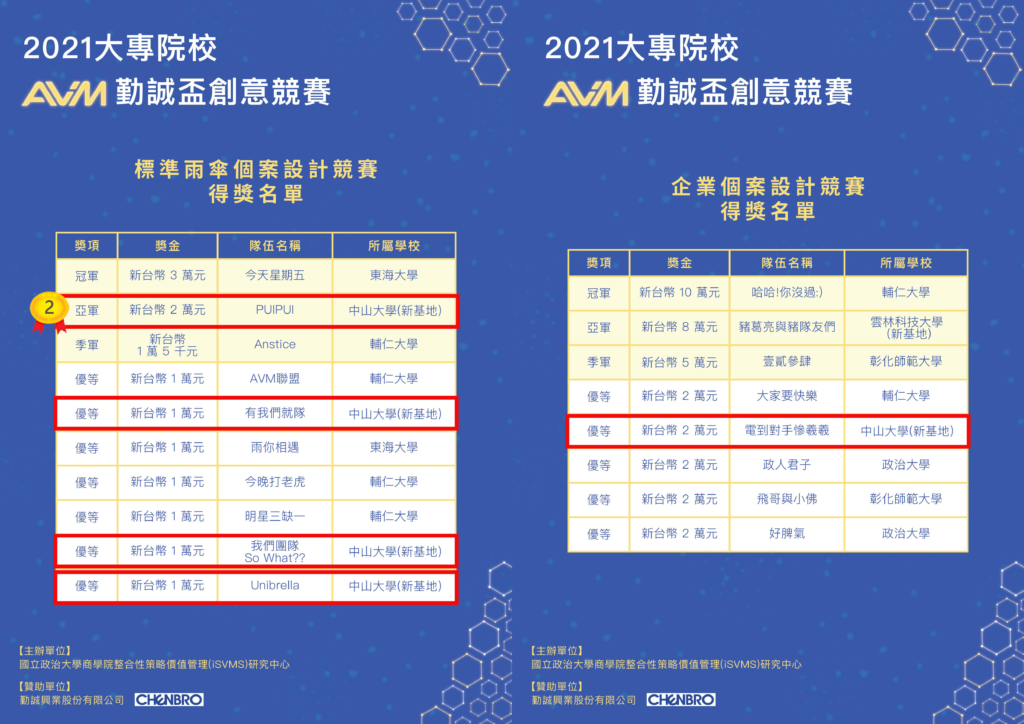 (Right picture) One team also won an Excellence Award in the Business Case Design category. The NSYSU Integrative Strategic Value Management System (iSVMS) University Branch Center was set up in March last year. The College of Management, NSYSU, has been committed to the development of big data analytics in business in recent years, and is deeply aware of the need for quality data in order to come up with more valuable information. Because of this, center director Professor Wei-Che Tsai, under the guidance and encouragement of Dean San-Yih Hwang, has been actively promoting the use of Activity Value Management (AVM) in teaching, hoping to nurture outstanding students and encourage students to participate in the competition. 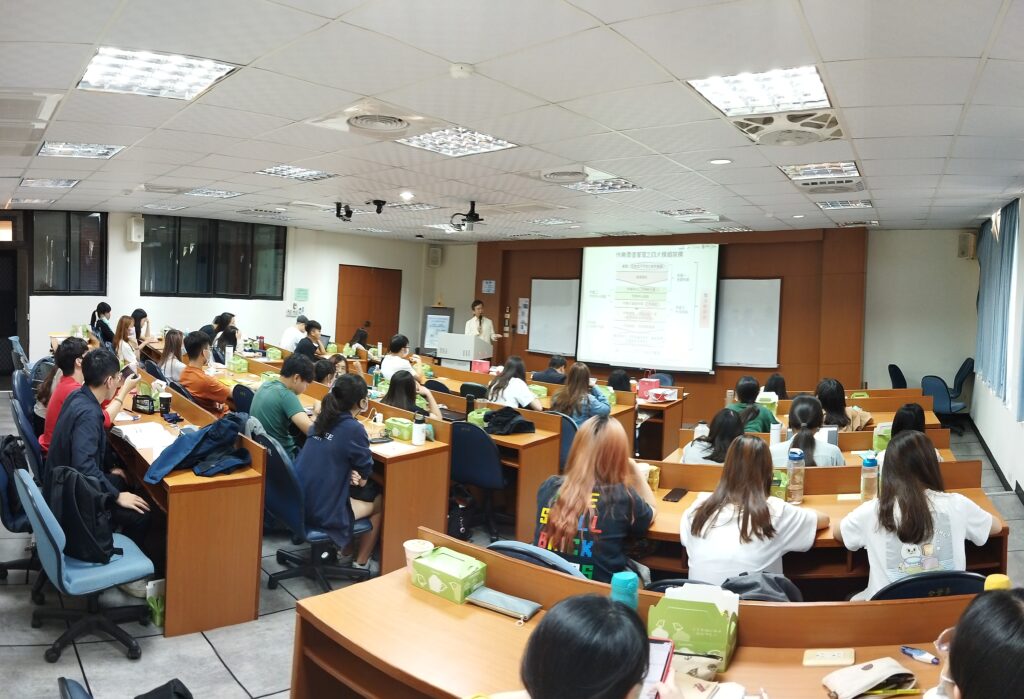 In this competition, the team “PUIPUI”, led by Associate Professor Ni-Yun Chen of the Department of Business Management, NSYSU, consisted of third-year students Ze-wei Du (杜則緯), Jun-jia Liu (劉竣嘉), Wo-hua Lin (林渥樺), and Wen-qi Li (李雯旂). The team’s name was PUIPUI, which is the sound that guinea pigs make when they are happy. The team took guinea pigs as their spiritual symbol, hoping to bring joy to the world as guinea pigs do and to keep moving forward. The team won the silver prize in the Standard Umbrella Case category. 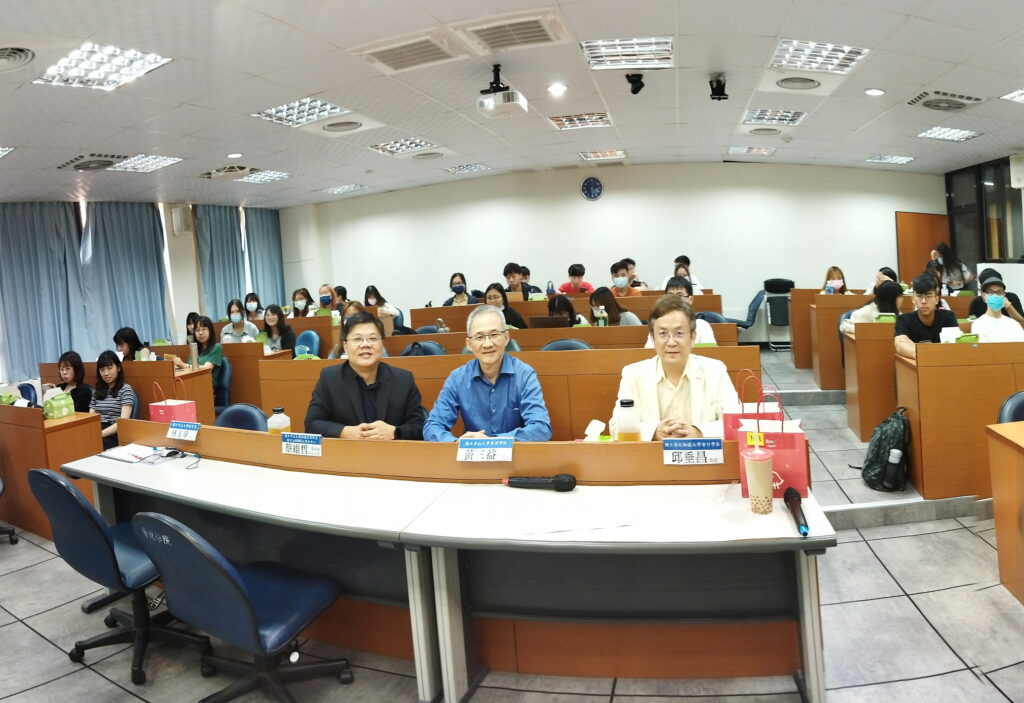 Finally, the “Strike the Opponents ‘til they are Can Xi Xi (慘羲羲, miserable)” team, coached by Assistant Professor Chia-Fen Tsai of the Department of Finance, NSYSU, consisted of Xi Chen (陳羲), Sheng-xuan Qiu (邱聖軒), Yi-xun Li (李易勳), Yu-jie Zhang (張渝婕), and Guan-rong He (何冠融), who were sophomores and juniors in the Department of Finance. The team name was a bit of fun; it was named after the team leader, Chen Xi, using the sound of his given name, “Xi”, with the intention of boosting the morale of the team. When the competition started, the team was ready to snatch the championship like a lightning bolt, and they took home the Excellence Award in the Business Case Design category. NSYSU EMBA wins Gentleman's Tripod again in EMBA Alliance Summit(Discover NSYSU) |
News Report【Student Association】The Virtual International Lounge - Distance makes our heart grow fonder  11th June 2021, the Student Association of International Programs (SA) held the "International Lounge" activity. It is an important event every semester that is mainly for introducing the election candidates' teams for the following student association. Due to the ongoing pandemic, the event can’t be held like every other year, but that didn't stop the SA from running this event. Where there is a will, there is a way. The SA holds it on virtually by Google Meet, which empowers the chance to let our programs students know more about the candidates and realize which team is the most appropriate for the position. 【IBMBA & GHRM MBA】2021 Graduation Ceremony: A ‘Different’ Kind Of Graduation For A Very Special Batch After two years of indelible memories, the curtains fell, and it was time to bid adieu to the GHRM MBA and IBMBA batch of 2021. The graduation ceremony for the GHRM MBA and IBMBA batch of 2021 was held on the 23rd of July via Zoom from 15:00-16:30. Due to the challenges brought about by the pandemic, for the first time, the graduation ceremony was entirely online. GHRM MBA alumnus Ryan Fernandez moderated the event. 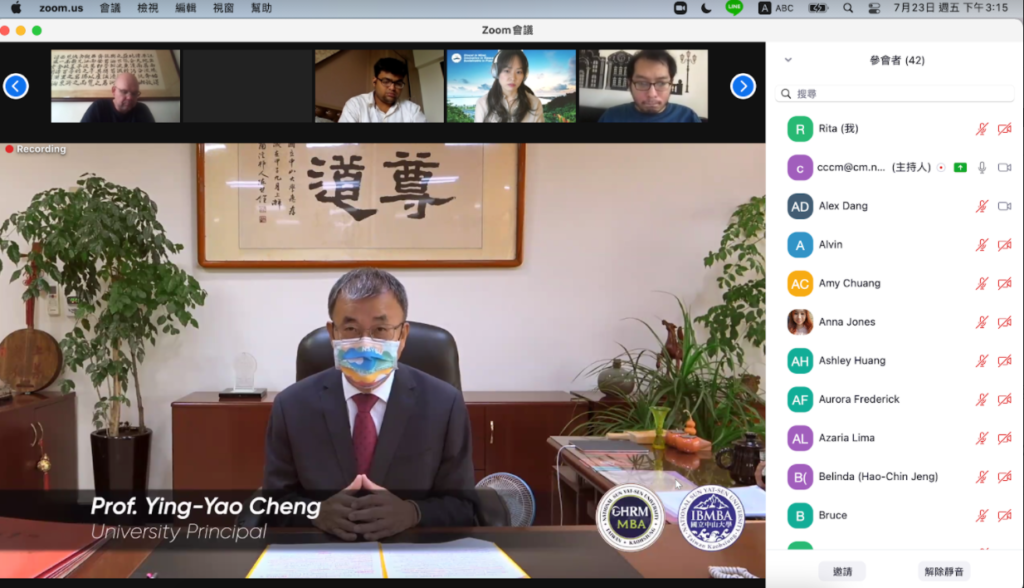 The ceremony started with a speech from the University Principal Prof. Ying-Yao Cheng. In his remarks, Prof. Cheng admitted that the graduation ceremony wasn't 'ordinary’ and said that he was proud of all the graduates and wished them the very best in their future endeavors. Following the speech by the University’s Principal, a message by the Dean of the College of Management, Prof. San-Yih Hwang, was delivered. In his speech, Prof. Hwang expressed his regret of not being able to meet physically due to the pandemic. He congratulated the graduates and encouraged them to visit NSYSU in the future. 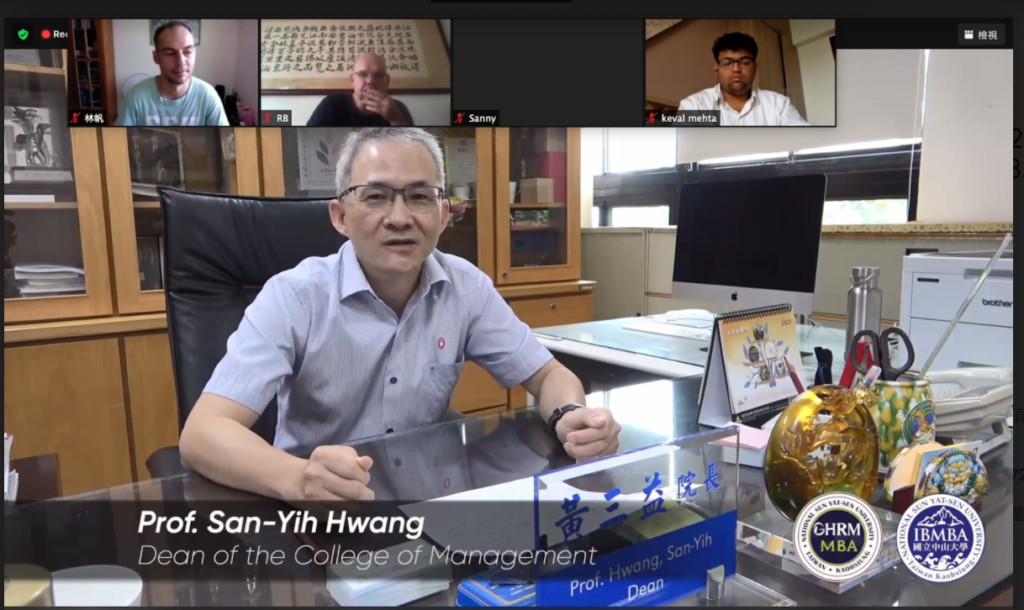 After that, International Program’s Director Assoc. Prof. Chien-Yuan Sher delivered his message and expressed his happiness for the graduates and wished them the very best for their future. It was then followed by a Speech by Deputy Director Assoc. Prof. Thijs Velema. In his speech, Prof. Velema declared that he expected great things from the graduates and congratulated them. Deputy Director Assist. Prof Ho-Ting Wong said it was a privilege to have taught the graduates and wished them good luck for their future. 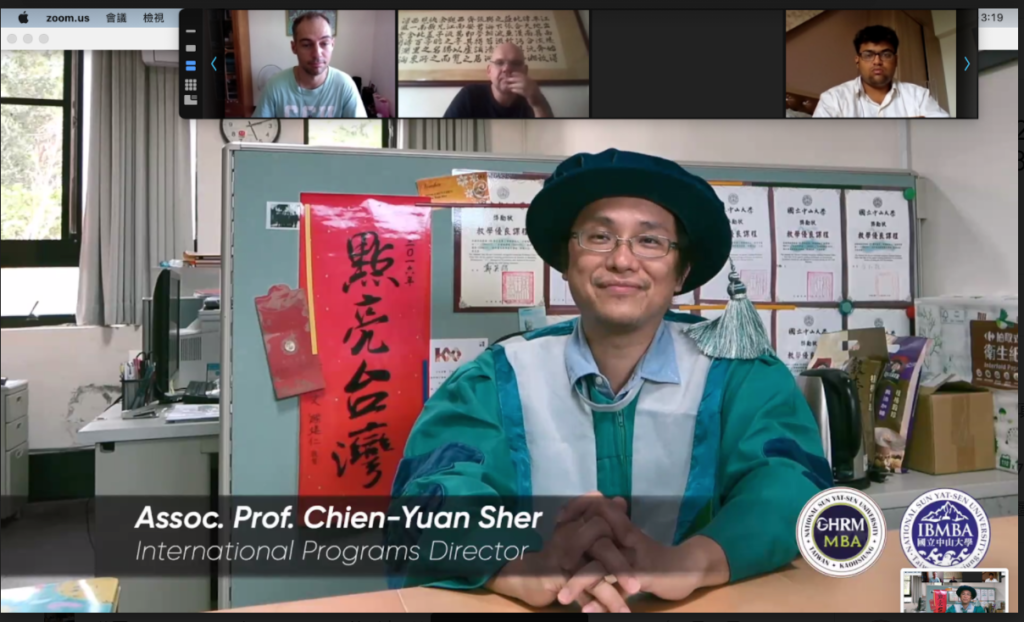 Finally, Prof. Shyh-Jer Chen, Assoc. Prof Yih Jeng, Assoc. Prof. Hsiao-Wen Ho, Assoc. Prof. David Andersson, Assoc. Prof. Kim-Choy Chung, Asst. Prof. Jeeyeon Kim, Asst. Prof. Ryan Brading, and Asst. Prof. Francois Bouchetox offered their congratulatory messages and wished the graduates success and prosperity for their future. After that, a candid screenshot was captured to commemorate the event, and the roll call of graduates for the GHRM MBA and IBMBA batch of 2021 was conducted. 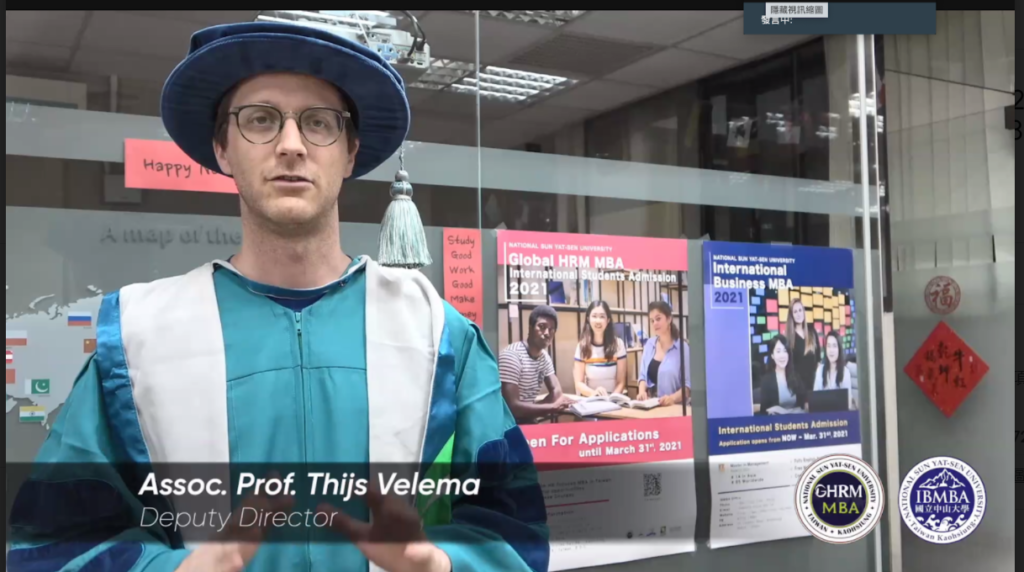 For the year 2021, graduate representative speeches were given by Gary Yuan from IBMBA and Perry Kennedy from GHRM MBA. In his speech, Gary Yuan regretted that they couldn't meet in person but was grateful for the last two years. Gary thanked the professors, office members, and friends for the fantastic two years and wished that they'll revisit NSYSU. Perry Kennedy representing GHRM MBA talked about how time flew by so quickly and reminisced about the lessons learned, friendships, and memories forged in the last two years and wished that everyone will do well here on forth. 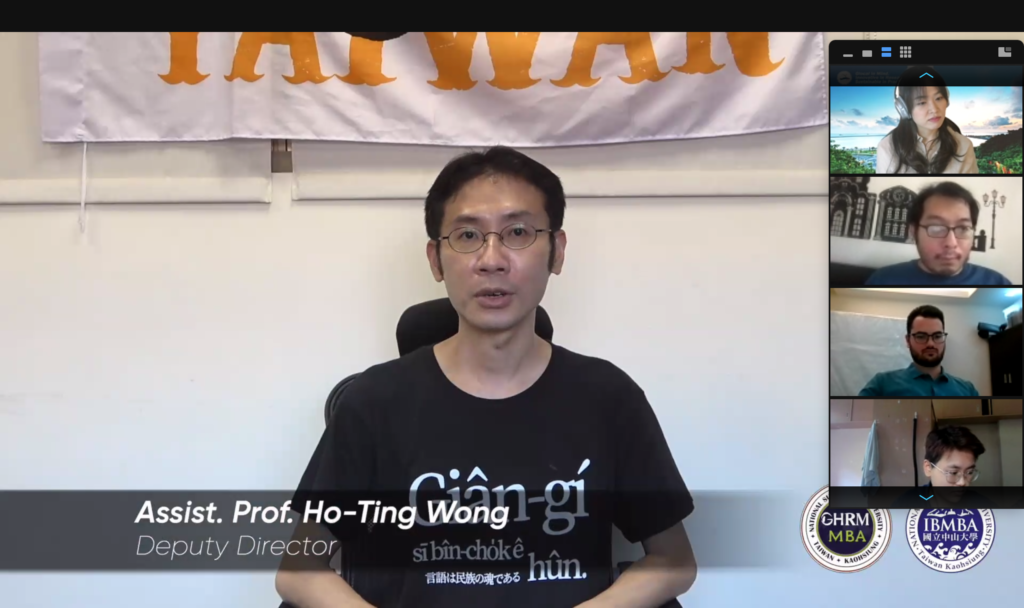 A lucky draw was also conducted, and the winners were offered NSYSU T-Shirts. Finally, a tear-jerking video filled with campus memories from the last two years was presented. After the graduation ceremony, GHRM MBA alumni Michal Ryznar, Grace Kuo, and IBMBA alumni Sandy Chen and Trent Prestegar send their congratulatory messages to the graduates along with invaluable career advice to help them jumpstart their careers. 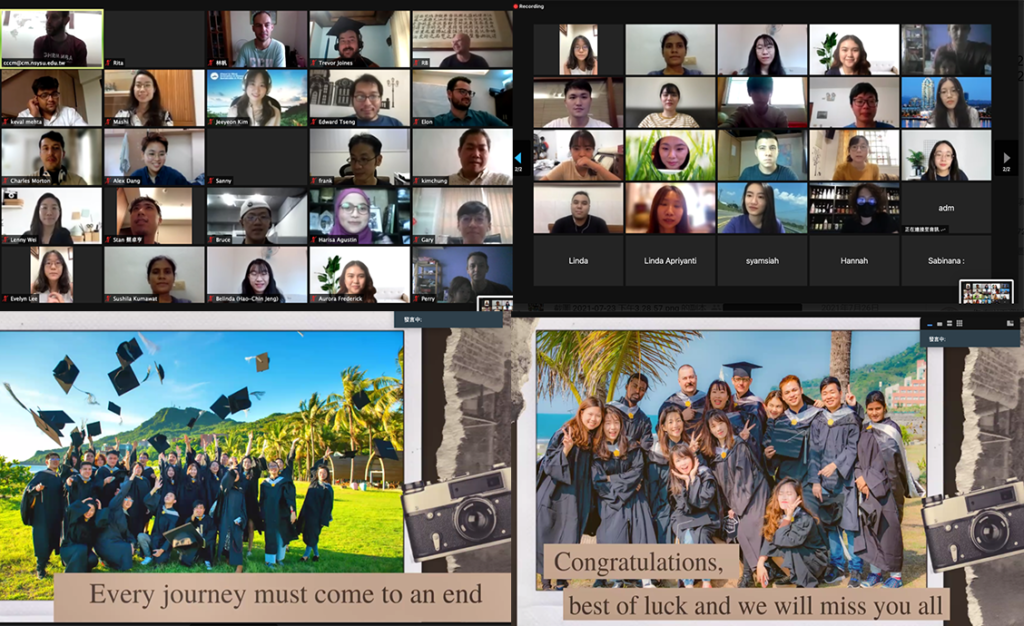 The batch of 2021 will go down in GHRM MBA and IBMBA history as the first batch to have an online graduation ceremony. It isn't the 'ordinary' graduation ceremony one would expect, but it shows how 'extraordinary' every one of you is. Despite the hurdles brought about by the pandemic, all of you persevered and crossed the finish line, and graduated. Every journey must come to an end, and we hope the memories you made at NSYSU will last a lifetime. May you all forge ahead and succeed, but we hope you'll always revisit NSYSU. We are proud of all of you, and congratulations once again. 【ACT】Innovation and Entrepreneurship Course “The Road to Innovation and Entrepreneurship” Series Report 1 – From 0 to 1: Discovering New Opportunities in the Post-Epidemic Era COVID-19 has pushed the pause button on the global economy and has brought radical changes to everyone’s life and work, from the daily operations of businesses to the lifestyles of people. This sudden epidemic has completely turned the norms of human life upside down, but has also shaped the industry in a new way. The Innovation and Entrepreneurship course in the ACT Global Program, taught by Professor Shih-Chieh Hsu, Department of Information Management; Dr. Shih-Hsiang Sung, Program of Interdisciplinary Studies; and Dr. Yu-Yu Chang, lecturer from the Institute of International Management, National Cheng Kung University, has led students on a journey of innovation and entrepreneurship in the post-epidemic era. 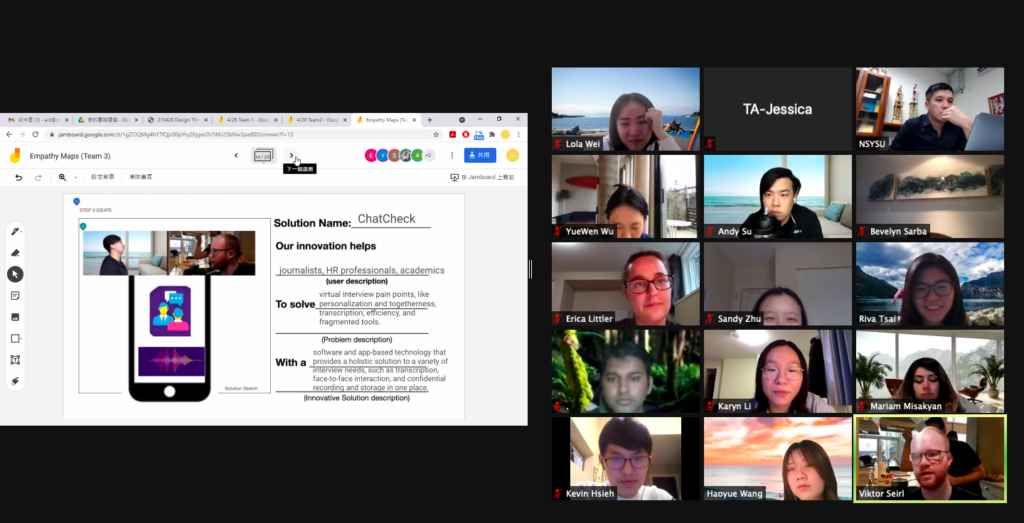 With the advent of the post-epidemic era, what new and unexpected opportunities are there for the global market? Through the Design Thinking Workshop, Dr. Shih-Hsiang Sung has guided students to use anthropological thinking to observe and interview the target audience in order to find new directions to solve problems. By using Point of View (POV) and How Might We (HMW) cards, students were able not only to define the needs of the target audience clearly and summarize their characteristics, but also to develop creative products that fit the needs of that audience. During the two-day online Design Thinking Workshop, students from different groups proposed different creative products, including the dating platform, Happy Place, which is expected to mitigate the suffering of not being able to get together with family and friends due to the epidemic; the self-checkout software, Anti-Cashier, which is expected to reduce contact risk; and the audio transcription software, ChatCheck, which is expected to improve the insufficient functionality of existing transcription software. 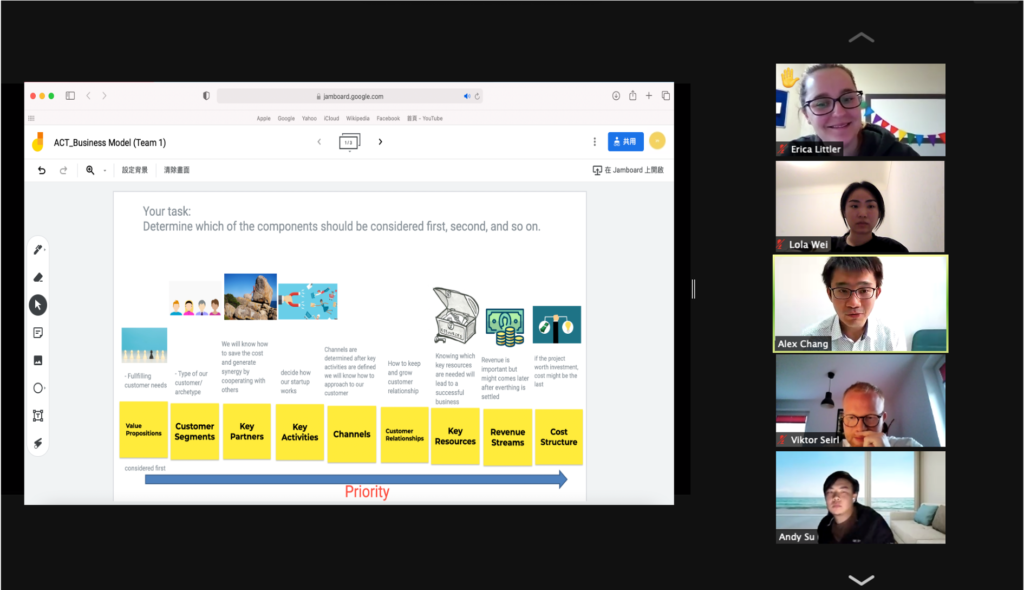 A good business model design is necessary for a new business to generate revenue and profits. Dr. Yu-Yu Chang used Google Jamboard with the business model game in order to enhance the interactivity of the distance learning course and stimulate the discussion atmosphere among groups of students in class. Through this hands-on process, students were able not only to understand the nine components of the Business Model Canvas more quickly, but also to apply what they had learned to their own proposals with ease. Viktor Seirl, a student from Austria, stated that through the Business Model Canvas, students were able to organize and visualize their ideas better. Erica Littler, a Canadian member of the same group, added that in the process of designing the business model, they were able to define their roles and contributions better within the team. 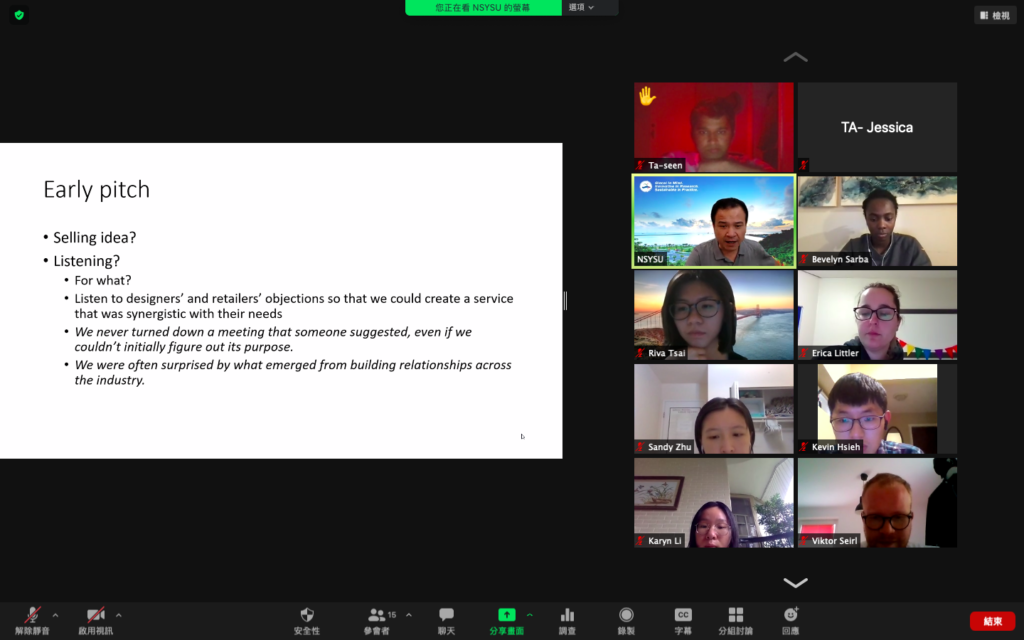 When a new venture team launches a product in the market, they face many challenges due to their limited understanding of said market. This is why Lean Startup has become essential for new entrepreneurs, helping them to understand user experience and conduct market validation. Professor Shih-Chieh Hsu discussed with students the importance of Lean Startup for new entrepreneurs through case studies. In class, students were encouraged to use the Minimum Viable Product (MVP) to design prototypes for market testing. In addition, through continuous “trial and error” and systematic reduction of pivots, new pathways can be found, which increases the chances of success and market acceptance of the tested product. Taseen Saqeeb, a student from Bangladesh, stated that market testing is a great experience. He said, “From each test, we can understand the shortcomings of the product and the actual needs of the market from the feedback of the test subjects, and the feedback is extremely valuable for us in improving the product features and business model design.” 【ACT】Innovation and Entrepreneurship Course “The Road to Innovation and Entrepreneurship” Series Report 2 – Looking at New Venture Teams from a VC Perspective: What Preparations Should Be Made When Raising Venture Capital? On the path of entrepreneurship, the greatest anxiety for entrepreneurs often comes from “pressure on capital”. For many people who want to start a business but are slow to do so, lack of capital becomes the biggest obstacle to their actions. For start-ups, the need to take responsibility for the success or failure of a company makes it critical to have better control over the capital flow of the business. Access to capital has thus become an important issue that no entrepreneur can ignore. For this reason, the “Innovation and Entrepreneurship” course within the ACT Global Program invited Mr. Ken Chuang, CEO of Rainmaking Innovation, to speak to the class on May 31, hoping that through his extensive practical experience, students could gain a better and deeper understanding of venture capital (VC). 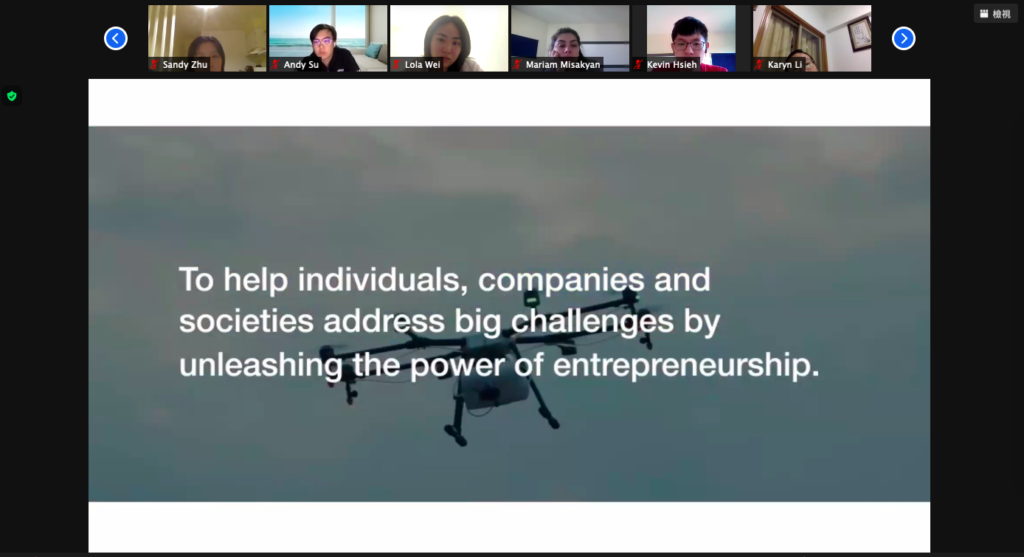 Rainmaking Innovation is an international startup accelerator platform that was set up in Europe 13 years ago. It has established, invested in, and accelerated nearly 1,000 new ventures in 10 major industry sectors with global resources, and is a key partner in strategic management partnerships with Global 500 companies. Rainmaking Innovation acts as a middleman between start-ups and companies, selecting investment targets according to the needs of the companies. To take the Taiwan market as an example, Fintech, Insurtech, Smart City, and AI are its recent main investment areas. 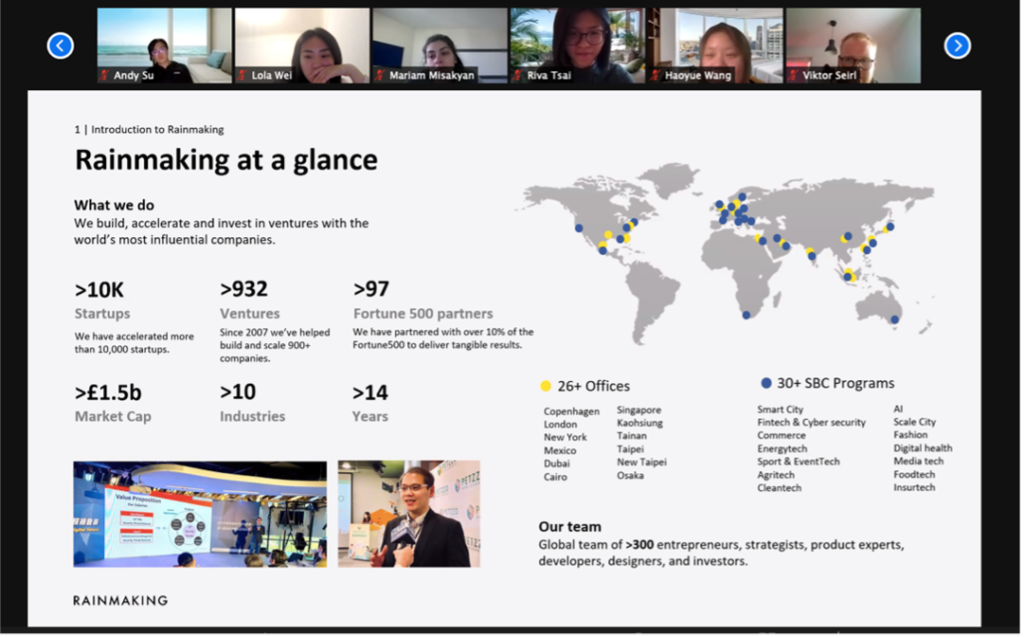 At the end of the speech, Taseen Saqeeb, a student from Bangladesh, asked the speaker, “Have you ever regretted not investing in a business? Have you ever felt regretful after investing in a business?” Mr. Chuang replied, “No regrets! My eyes are as sharp as an eagle’s, and I can find the next team that is more worthy of investment!” Before closing his speech, in addition to reminding students to learn how to promote themselves and create the value needed by venture capitalists, Mr. Chuang also cited a famous quote from Ellen Johnson Sirleaf: “If your dreams don't scare you, they’re not big enough!” in order to encourage students to embrace challenges and create unlimited possibilities. 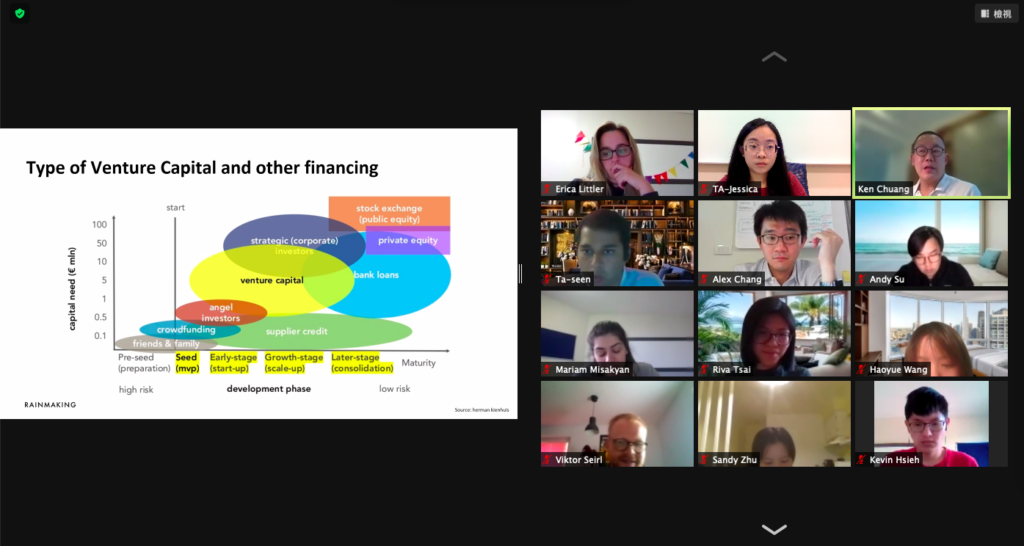 (Written by Yen-Chu Lai from IBMBA / Edited by the College of Management) 【ACT】Innovation and Entrepreneurship Course “The Road to Innovation and Entrepreneurship” Series Report 3 – The Legal Aspects of Entrepreneurship: 15 Big Legal Mistakes Made by Start-Ups In the early stages of entrepreneurship, new start-up teams are often so focused on operations and fundraising that they overlook the importance of legal issues. However, in order to survive and thrive on the battlefield of the business world, new entrepreneurs must understand the opportunities and limitations of entrepreneurship in order to avoid breaking the law. On June 2, the ‘Innovation and Entrepreneurship’ course within the ACT Global Program invited Dr. Thomas Y. Lu, assistant professor of the Department of Business Management, who has strong legal knowledge and extensive practical experience, to speak to the class, hoping to raise students’ awareness of the legal regulations when starting a business. 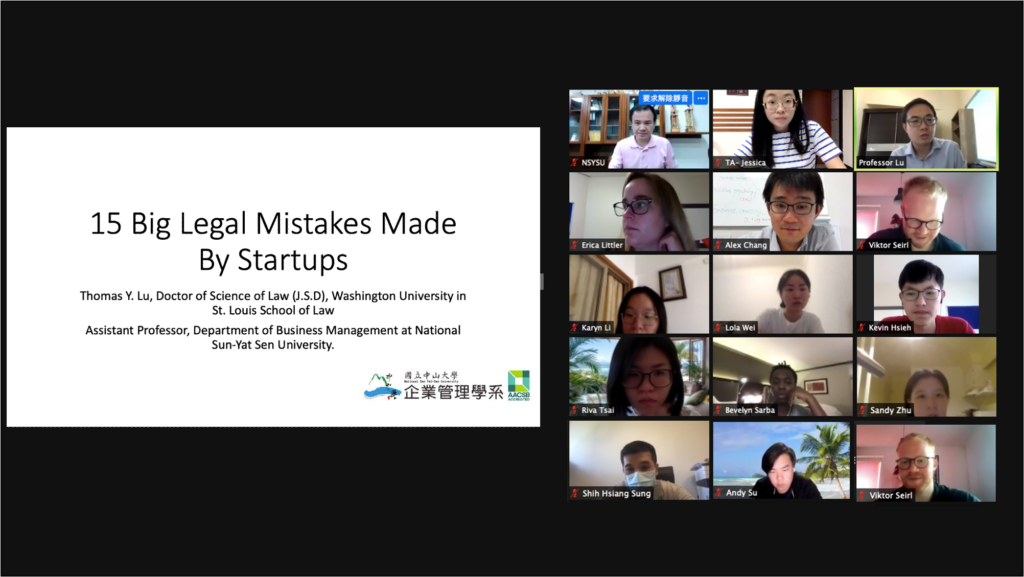 Dr. Lu has a master’s degree in technology management and intellectual property law from National Chengchi University, and a master’s degree in intellectual property law and a J.D. from Washington University in St. Louis. In addition to his research on intellectual property and anti-trust law, he is also interested in innovation and entrepreneurial management. Therefore, he combined these two different areas and explained to students the legal regulations to which entrepreneurs need to pay special attention when starting a business, under the topic of “15 Big Legal Mistakes Made by Start-Ups”. 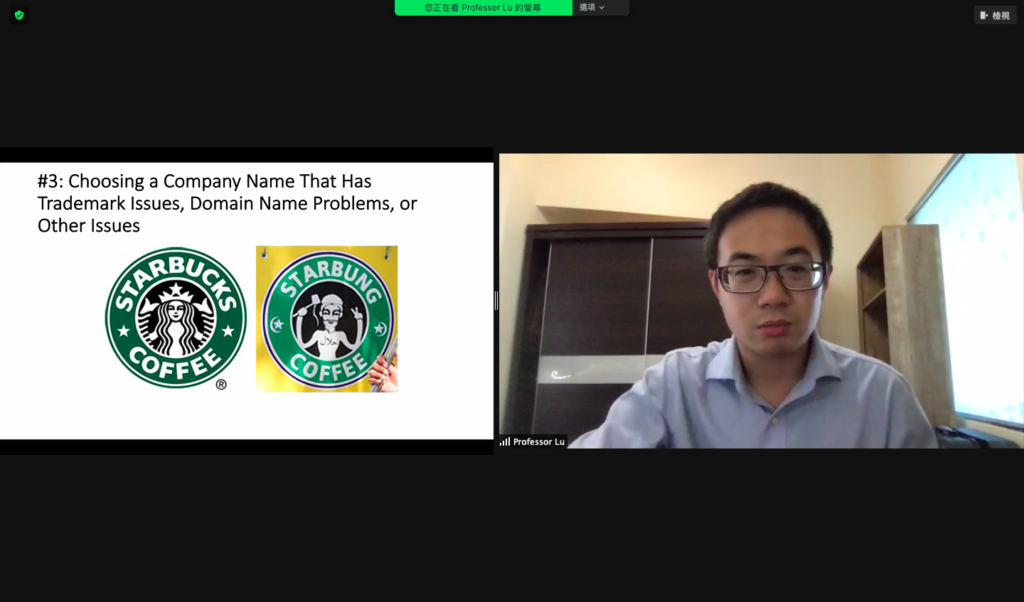 As the seminar came to an end, Erica Littler, a student from Canada, took the opportunity to ask questions about cybersquatting, a form of malicious trademark hijacking. After the speaker's explanation, everyone had a better understanding of the legal regulations concerning cybersquatting. At the end of the lecture, Taseen Saqeeb, a student from Bangladesh, expressed his appreciation for the lecturer's simple-to-understand presentation of the complicated legal provisions, ranging from the choice of organization type to the attribution for intellectual property with real-life examples, and thanked the Innovation and Entrepreneurship course in particular for organizing this lecture.  (Written by Yen-Chu Lai from IBMBA / Edited by the College of Management) 【109-2 Internship Sharing】HRM must become a HR? Unlock Different Internship Opportunities! GHRM MBA Student: Mandy Chen 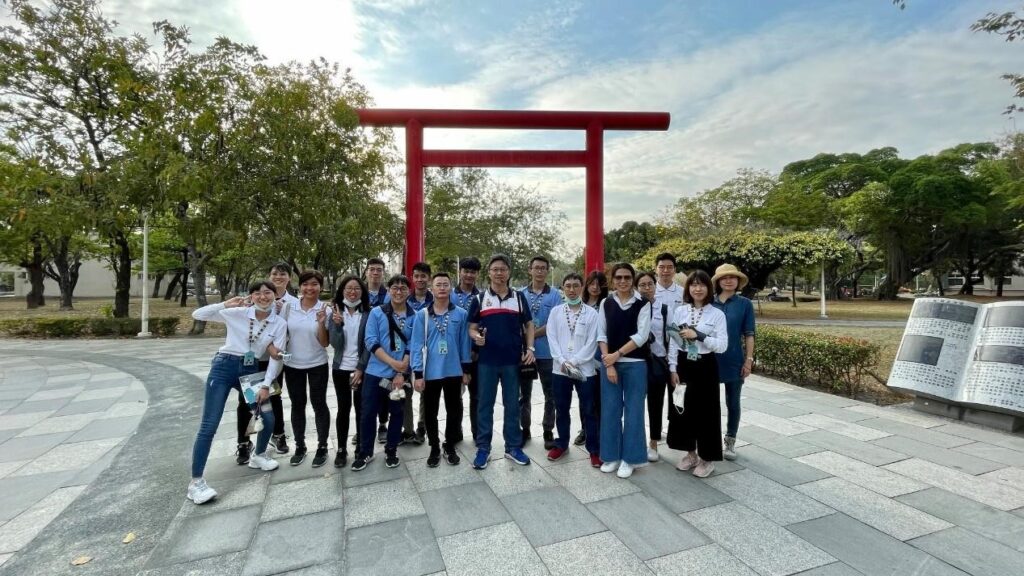 The business model of Taiwan Fu Hsing is B2B. As a result they are less familiar with end-users. To enhance product and service quality, the company builds a stronger liaison with customers by optimizing the online service channel. Therefore, Stan, a 2nd-year IBMBA student, and I had to launch an online service channel prototype within 3 months. Due to the in-depth training arranged by HR, we knew the line-ups and the sales status of digital locks in the domestic market. To develop the most effective and feasible solution, we conducted comprehensive market research and benchmark to have a clear grasp of the industry’s status quo and market demand. 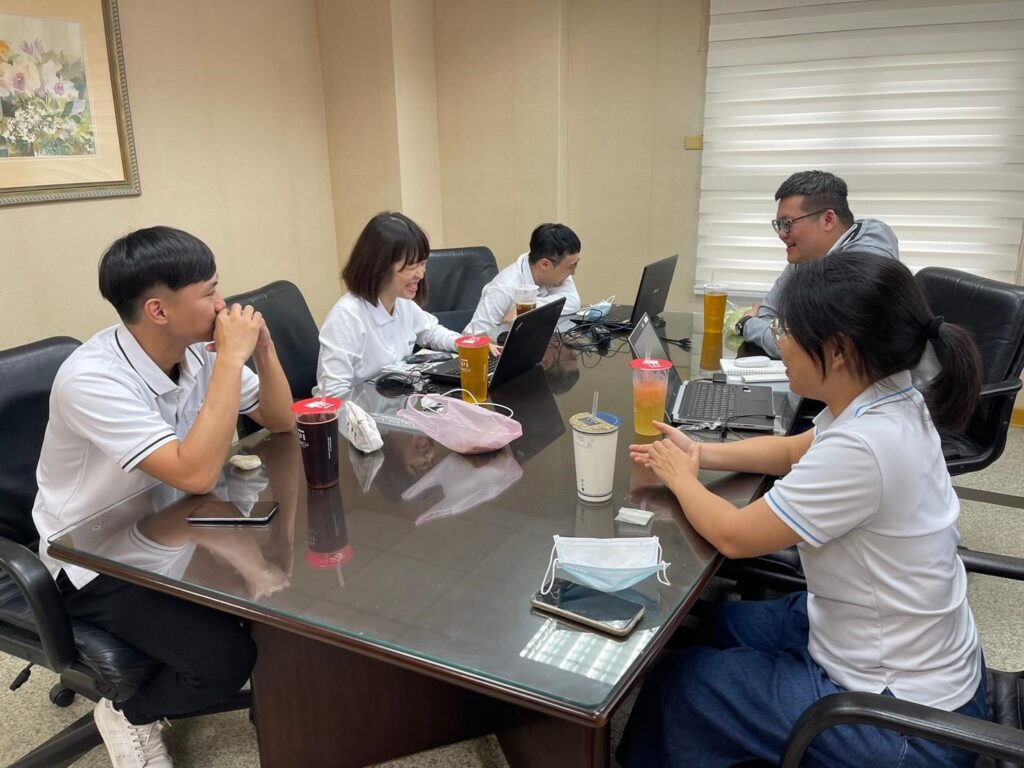 Through internships, we can discover sides of ourselves that we didn't know before. To be honest, I hesitated to take the internship due to the commuting distance between Gangshan and Gushan, but my mentor and colleagues encouraged me to accept the internship. Thanks to the internship, I learned about one more industry, one small town, a group of warm-hearted supervisors and co-workers, and a new career path, and it was worth riding 150km every week. Regardless of whether we land our career in HR or not, as students, it is worthwhile to explore various internship experiences. We may end up unlocking another unexpected life path. |
 |
|
| ©2016 College of Management National Sun Yat-sen University. All rights reserved. | CCCM |